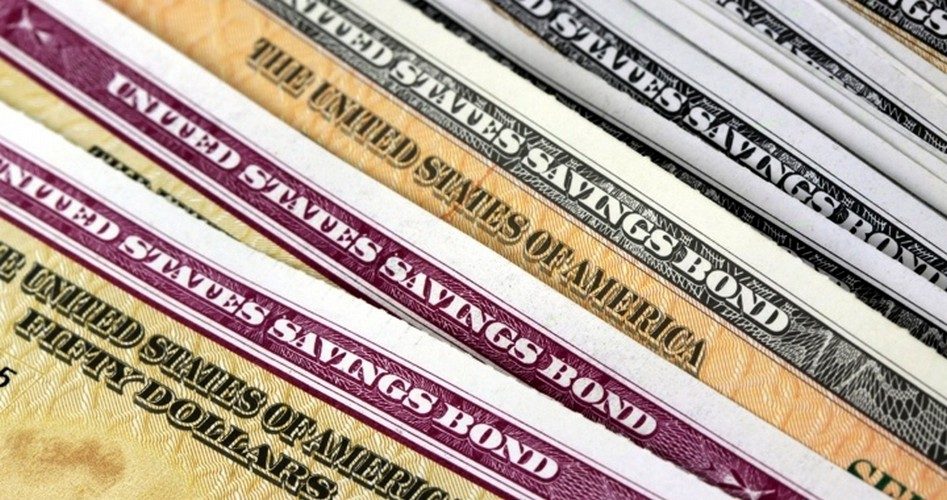
Facing an imploding stock market and the potential for even more widespread economic chaos, the dictatorship ruling mainland China — the top foreign holder of U.S. Treasury bonds — is selling U.S. debt to prop up the Chinese yuan (renminbi), according to news reports. The move, which has long been anticipated by analysts, could have major implications for the American economy and especially the U.S. dollar — particularly if the pace of liquidation were to accelerate. As of now, confusion about the developments is running rampant.
Analysts have been warning of the sales since at least early last week. However, news that Beijing was cutting its holdings of U.S. treasuries was first reported in the establishment press on August 28 by Bloomberg, which cited unnamed “people familiar with the matter” as sources. “Channels for such transactions include China selling directly, as well as through agents in Belgium and Switzerland, said one of the people, who declined to be identified as the information isn’t public,” the agency reported. “China has communicated with U.S. authorities about the sales, said another person.”
The value of the U.S. Treasury securities being liquidated by the Chinese regime was not immediately clear, and Bloomberg’s sources apparently did not reveal it. However, the news agency, citing an estimate by Societe Generale bank previously highlighted by ZeroHedge and others, reported that the Communist Party dictatorship’s central bank, known as the “People’s Bank of China,” had sold at least $106 billion of reserve assets. That includes U.S. treasuries. The move came after the Chinese regime, which attempts to strictly manage the value of its fiat currency, announced a devaluation of the yuan (RMB) as it struggled to contain the emerging crisis.
Chinese government selling of U.S. treasury bonds is “not a surprise, but possibly something which people haven’t fully priced in,” Owen Callan, a fixed-income strategist at Cantor Fitzgerald LP, was quoted as saying. “It would change the outlook on Treasuries quite a bit if you started to price in a fairly large liquidation of their reserves over the next six months or so as they manage the yuan to whatever level they have in mind.” Whether that will happen or not is not yet clear, with speculation going both ways.
Beijing, of course, is the largest foreign holder of U.S. Treasury debt, estimated at close to $1.5 trillion. Part of that is held in custodial accounts in Europe. So, if the regime were to suddenly start dumping that debt, the effect could be cataclysmic for the U.S. economy. With the U.S. government already $17 trillion in debt — not to mention an estimated $100 trillion to $200 trillion in unfunded liabilities — more than a few experts have pointed out that the current situation is not sustainable. In fact, considering those numbers, even the notion of U.S. treasuries as a “safe haven” asset has long been questioned or even ridiculed by more pessimistic economists and investors.
Analysts noted that there was a difference between Beijing flooding the market with U.S. treasuries as a tactic in economic warfare, versus merely adjusting its portfolio of foreign-reserve assets to achieve policy goals such as manipulating the value of its currency. The globalist establishment has long downplayed fears that Beijing might one day dump its U.S. dollar-denominated assets — treasuries, dollars, and more — to economically cripple the United States. But it is, of course, possible that Beijing could do just that — leaving Americans and their economy at the mercy of one of the most brutal dictatorships on the planet.
Considering the admitted goals of Communist China’s ruling class — not to mention recent rhetoric from its propaganda apparatus — the notion that Beijing might some day seek to crush the U.S. economy by dumping its dollar-denominated assets is hardly far-fetched. In fact, in 2013, the regime’s Xinhua “news” agency called for a “de-Americanized” “new world order” that would sideline the U.S. dollar. Before that, Beijing’s central bank had for years been calling for a new world currency to replace the dollar as the global reserve — a prospect that Obama’s Treasury secretary at the time, Timothy “TurboTax” Geithner, said the administration was “quite open” to. The Chinese regime has also been making deals around the world to sideline the U.S. dollar in international trade.
So far, the effect of Beijing’s selling on U.S. Treasury bond yields has been relatively contained. Analysts said that was largely because, with the recent market chaos, much of the capital that flowed out of equity markets around the world flowed into the perceived safety of U.S. government bonds. Indeed, many foreign central banks outside of China have reportedly increased their U.S. debt holdings, too, with institutions such as central banks and governments now playing a “dominant” role in global capital markets. Because of its outlandish secrecy regime, it was not immediately clear if the Federal Reserve may have been involved, or how large its role may have been in gobbling up Treasury bonds or manipulating prices.
However, if the pace of sales out of Beijing remains steady, yields on treasuries could rise by as much as one percent in the coming weeks — and much more after that if it continues. That would mean U.S. taxpayers would be paying far more interest to bond holders, potentially with devastating consequences. For now, “mainstream” analysts say they believe it is unlikely China would dump its U.S. holdings too quickly, for fear of devaluing its own assets and potentially bringing about global instability. But all of those analyses fail to consider that the regime in Beijing could have other priorities that would be more important than the value of its reserves.
Some gloomier analysts are warning that the implications of Chinese T-bill selling are much broader than the establishment has let on so far. “In order to truly comprehend what’s going on here, one needs to look at China’s UST liquidation in the context of the epochal shift that began to unfold 10 months ago,” noted the financial-focused analysis site ZeroHedge.com. Highlighting depressed oil prices and what that means for the “petrodollar,” a term used to describe the U.S. dollar’s role as the global reserve perpetuated by the pricing of oil worldwide in dollars, the analysis suggests that the process began even before the latest news from China — and that it could mean big trouble for the U.S. dollar.
“In short, China’s FX management means that Beijing has joined the global USD asset liquidation party which was already gathering pace thanks to the unwind of the petrodollar system,” ZeroHedge analysts noted. “Where we go from here is an open question, but what’s clear from the above is that between China’s FX reserve drawdowns in defense of the yuan and the dramatic decrease in petrodollar flow, the self-feeding loop that’s sustained the dollar and propped up USD assets is now definitively broken and we are only beginning to understand the consequences.”
Despite the recent economic pain to hit China, including a massive sell-off in the stock market that sent shockwaves around the world, the fact that Western globalists and Chinese Communist Party bosses hope to see the Chinese regime play a starring role in what they call the “New World Order” is beyond dispute. In fact, they say so themselves, with billionaire Obama backer George Soros, for example, calling for the Chinese dictatorship to “own” the “New World Order” in the same way that the United States owned the previous world order.
How the recent economic turmoil might factor in remains to be seen. But if, as some analysts are predicting, a currency crisis is getting underway, the engineered crisis could easily be exploited to advance the global currency-global governance agenda. From London, D.C., and Paris to Beijing and Moscow, the push for a global fiat currency managed by the IMF has been kicked into high gear in recent years.
Of course, more than a few analysts have long warned about economic instability in China even while its economy seemed to be growing at breakneck speed. Despite slight “market-oriented” reforms over the past few decades, the Communist Party regime still controls most of the economy through central planning in credit allocation, so-called “state-owned enterprises” that dominate the markets, tight management of its fiat currency, and much more. As central planning always does everywhere, all of that leads to massive malinvestment, wasted resources, and other problems. That is becoming increasingly obvious in China as stock and real-estate bubbles collapse. And it may get worse, soon.
The real solutions to the unfolding economic fiasco, at least from an American perspective, involve fundamental reform of the monetary and fiscal status quo. The privately owned Federal Reserve, for instance, should be abolished to prevent its market manipulations, its half-baked central planning of interest rates, and its conjuring into existence trillions of dollars backed by imposible-to-pay debt saddled on the American people. The federal government, meanwhile, must stop squandering trillions of dollars it does not have to finance unconstitutional and harmful agencies, programs, and schemes. Without those systemic reforms, the economic outlook for America — and the world — looks bleak indeed.
Alex Newman, a foreign correspondent for The New American, is normally based in Europe. He can be reached at [email protected]. Follow him on Twitter @ALEXNEWMAN_JOU.
Related articles:
China: Staking Claim in the New World Order
Central Banks Now Dominate Stock Market, Study Finds
Gold Price Suppressed to Benefit Beijing, Says Top Expert
Fed Manipulations in the Crosshairs
With Dollar Demise in Focus, Beijing Pushes “New World Order”
Russia-China Deals: Another Nail in the Coffin for U.S. Dollar
U.K. Sells Bonds in China’s Currency, Adding Pressure on Dollar
IMF May Move From D.C. to Beijing, Chief Says
BRICS Regimes Forge New World Bank, Call for Global Currency



